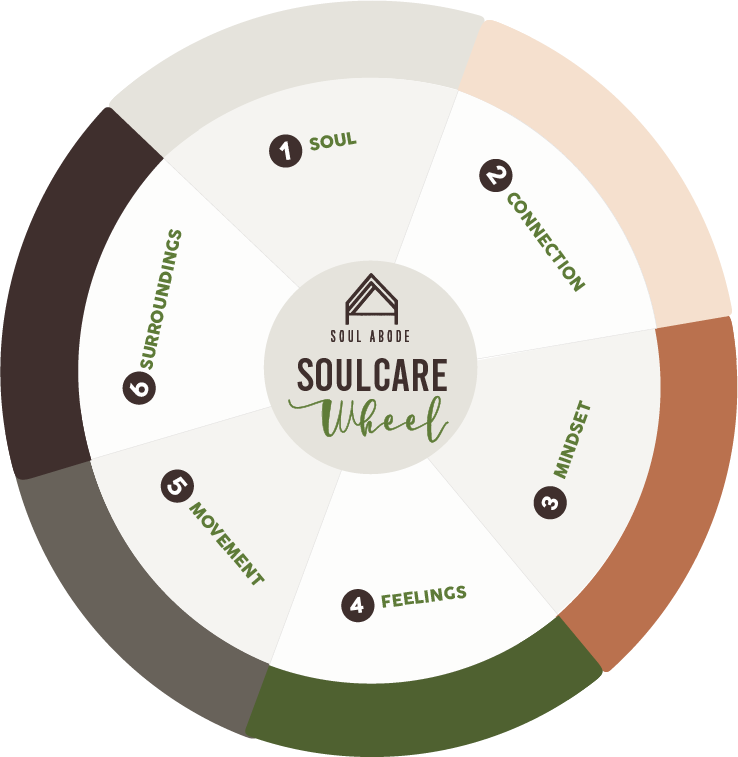From Self-Care to Soul Care

A fresh haircut and color, elegant nails, sandal ready feet, warm bubbly baths, fancy girl trips, over budgeted retail therapy days, positive affirmations; we’ve been programmed into identifying these things as “self-care” practices. The messaging is all around us. Self-care is the buzzword of the day. Our friends are talking about it, magazine editors are writing about it and health and wellness brands are selling access to it. This message is that women should and need to “take care of self; first and foremost.”
As we are becoming more in tune with our physical, emotional and mental health needs, the concept of self-care has been neatly wrapped and packaged as an escape from the day to day hustle and grind. Our social media feeds are inundated with catchy slogans, inspirational quotes and pictures of us attempting to “treat ourselves” to a little self-care.
Don’t get me wrong, I’m a big believer in rewarding ourselves, honoring ourselves and acknowledging our self-worth. We need to rest. We need to recalibrate. We need to recharge. Self-care is serious business for us. Why? Because as women of color, we suffer from burnout syndrome.
Burnout is a state of emotional, physical, and mental exhaustion caused by excessive and prolonged stress. It occurs when we feel overwhelmed, emotionally drained, and unable to meet the constant demands that life requires. The thing that is most disturbing is that for women of color, this prolonged exhaustion is our normal.
Are we allowed to be tired?
Are we allowed to play?
Are we allowed to take a time out?
At times, I think not. Women of color by and large are left out of the wellness conversation. I don’t think we intentionally take the time to define or indulge in self-care practices because it wasn’t an option for us. We didn't see the women we love doing these things on a regular basis. Instead, we watched these women in our families suck it up, fix that stiff upper lip, wipe away the tears, throw on a fake smile and keep it moving; to the detriment of their health and well-being.
In the black and brown community, we are used to seeing women take care of everyone else first. We are taught to throw on our superwoman capes, and access the power to be everything to everyone. And the price we are paying is high. Reduced performance and productivity, anxiety, detachment, isolation, depression, low mood, lack of creativity, extreme fatigue..(deep breath)
It doesn’t end there, the underlying health conditions that affect women of color prove that we are disproportionately at risk for comorbidities. According to the US Department of Health and Human Services African American women have the highest rates of obesity or being overweight compared to other groups in the United States. About 4 out of 5 African American women are overweight or obese.
- In 2018, non-Hispanic blacks were 1.3 times more likely to be obese as compared to non-Hispanic whites.
- In 2018, African American women were 50 percent more likely to be obese than non-Hispanic white women.
- From 2013-2016, non-Hispanic black females were 2.3 times more likely to be overweight as compared to non-Hispanic white females.
- People who are overweight are more likely to suffer from high blood pressure, high levels of blood fats, diabetes and LDL cholesterol – all risk factors for heart disease and stroke.
-
In 2018, African Americans were 20 percent less likely to engage in active physical activity as compared to non-Hispanic whites.
The leading African-American poet and essayist Audre Lorde describes in her famous quote- “Caring for myself is not self-indulgence, it is self-preservation, and that is an act of political warfare.”
The truth is, burnout syndrome has been the constant state of women of color for hundreds of years. We are still struggling to survive. We are still at war. It is our responsibility to fight for the care of our soul. This is how we move from surviving to finally thriving.
When we take the time to pause and dig deeper into this concept of self-care, many of us are at a loss. Self-care means different things for different people. But basically, self-care is any (intentional) action you take to care for your mental, emotional, and physical health and well-being. True self self-care practices are rooted in “being” not “doing”. Starting a self-care journey is not always comfortable. To really take care of yourself requires courage and vulnerability because it will be painful when you have to embrace those parts of yourself that you’ve denied for a long time.
We combat burnout by moving from self-care care to soul care. We have to dig deeper in defining what wellness means to each of us and applying it to our daily lives. It starts with removing the association with the “strong woman” archetype. This one-dimensional stereotype in itself is a lie. She doesn’t exist. There is strength in asking for help and in asking for what you want and need.
Soul Care starts with giving yourself permission. Permission to say that you are tired of being tired. Permission to admit that what you are doing isn’t serving you anymore. Soul care is a way of whole life living. It’s rooted in six dimensions of well-being: soul, connection, mindset, feelings, movement and surroundings. All of these dimensions represent aspects of who we are and each demand that we give it the proper attention it deserves. You must approach healing your life as a whole. When we compartmentalize our life and break it into pieces, we experience brokenness.
The health of each dimension aims to enhance well-being of the whole person.
The Connection Dimension deals with our relationships with others. Questions to ask yourself are:
- How do you connect to those close to me as well as those in the larger community?
- Do I have a sense of belonging?
- Am I able to resolve conflicts?
The Movement Dimension is the area many often associate with overall wellness. This area includes the ways we take care of our bodies. Questions to ask yourself are:
- Am I getting restful and adequate sleep?
- Do I make conscious decisions about what I put in my body?
- How am I moving and appreciating my body?
The Soul Dimension one’s ability to find purpose and meaning. It’s not limited to religious beliefs and practices, Spiritual Wellness includes the values placed into action to create harmony, peace, and joy. Questions to ask yourself are:
- Do my actions and words reflect my values and ideals?
- How do I find a place of calm, comfort and unconditional love?
- What am I doing for others from place of choice?
The Feelings Dimension consists of being able to experience a broad range of emotions, thoughts, and reactions. It also includes identifying, managing and understanding our emotions as we experience them. Questions to ask yourself are:
- Am I able to identify and articulate my feelings appropriately?
- Can I console myself when I am upset?
- How flexible am I in response to change?
The Surroundings Dimension incorporates the interdependency of us as individuals and our environment. The core element is recognizing that the spaces that we live in affect our health and well-being. Questions to ask yourself are:
- Do I live in a clean and tidy home without clutter?
- Do I have a relationship with nature?
- What steps am I taking to contribute to the health of the planet?
The Mindset Dimension is associated with self-development, growth and lifelong learning. It includes engaging the subject or topic you know nothing about and being willing to sit with the experience of “not knowing” a definitive answer. Questions to ask yourself are:
- Do I approach an issue seeking different perspectives than my own?
- How do I express my creativity?
- Do I have limited beliefs that hold me back from success in life?
Soul Care is rooted in recovery...
- From the pain
- From the heartache
- From the trauma
- From the fatigue
Because...
- Soul Care brings restoration
- Soul Care brings resiliency
- Soul Care brings healing
- Soul Care brings purging
It’s time to come back home….

Jennifer McDaniel
Jennifer McDaniel is a well being strategist, ICF accredited professional coach. She has 25+ years of experience as a professional speaker, corporate trainer and a learning development leader in the beauty, health and wellness space.
Read MoreRelated Articles

Sign-up for our newsletter
By clicking "sign up," you agree to receive emails from Soul Abode and accept our web terms of use and privacy and cookie policy.





